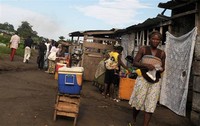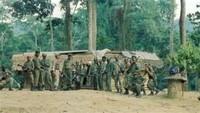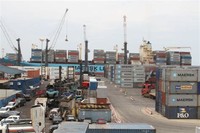Facts about Angola

Portugal's primary interest in Angola quickly turned to slavery, which began with the purchase from African chiefs of people to work on sugar plantations in Sгo Tomй, Principй, and Brazil.

In 1482, when the Portuguese first landed in what is now northern Angola, they encountered the Kingdom of the Congo, which stretched from modern Gabon in the north to the Kwanza River in the south.

Angola has three main ethnic groups, each speaking a Bantu language: Ovimbundu (37 percent), Kimbundu (25 percent), and Bakongo (13 percent).

Mestiзos (Angolans of mixed European and African origins) amount to about 2 percent, with a small (1 percent) population of whites.

Many scholars agree that by the nineteenth century, Angola was the largest source of slaves not only for Brazil but also the Americas, including the United States.

In 2005, the government started using a $2 billion line of credit from China to rebuild Angola's public infrastructure.

Angola's capital, Luanda, lies on the Atlantic coast in the northwest of the country.

Portuguese make up the largest non-Angolan population, with at least 30,000.

Angola is divided into an arid coastal strip stretching from Namibia to Luanda; a wet, interior highland; a dry savanna in the interior south and southeast; and rainforests in the north and in Cabinda.

Angola is bordered by Namibia to the south, Zambia to the east, the Democratic Republic of the Congo to the northeast, and the South Atlantic Ocean to the west.

To fully take advantage of its rich national resources—gold, diamonds, extensive forests, Atlantic fisheries, and large oil deposits—Angola will need to continue reforming government policies and reducing corruption.

In 2006, Angola became a member of the Organization of the Petroleum Exporting Countries (OPEC).

Ndongo was the most significant, and modern Angola derives its name from the Ndongo word ngola (king).

The Zambezi River and several tributaries of the Congo River have their sources in Angola.

The Angolan military launched a massive offensive in 1999 that destroyed UNITA's conventional capacity and recaptured all the major cities previously held by Savimbi's forces.

The Front for the Liberation of the Enclave of Cabinda (FLEC), formed in 1974, rejected the agreement that included Cabinda as part of Angola at independence.

China has invested huge sums in reconstruction, and is now Angola's biggest oil export market.

Colonial economic development did not translate into social development for native Angolans.
